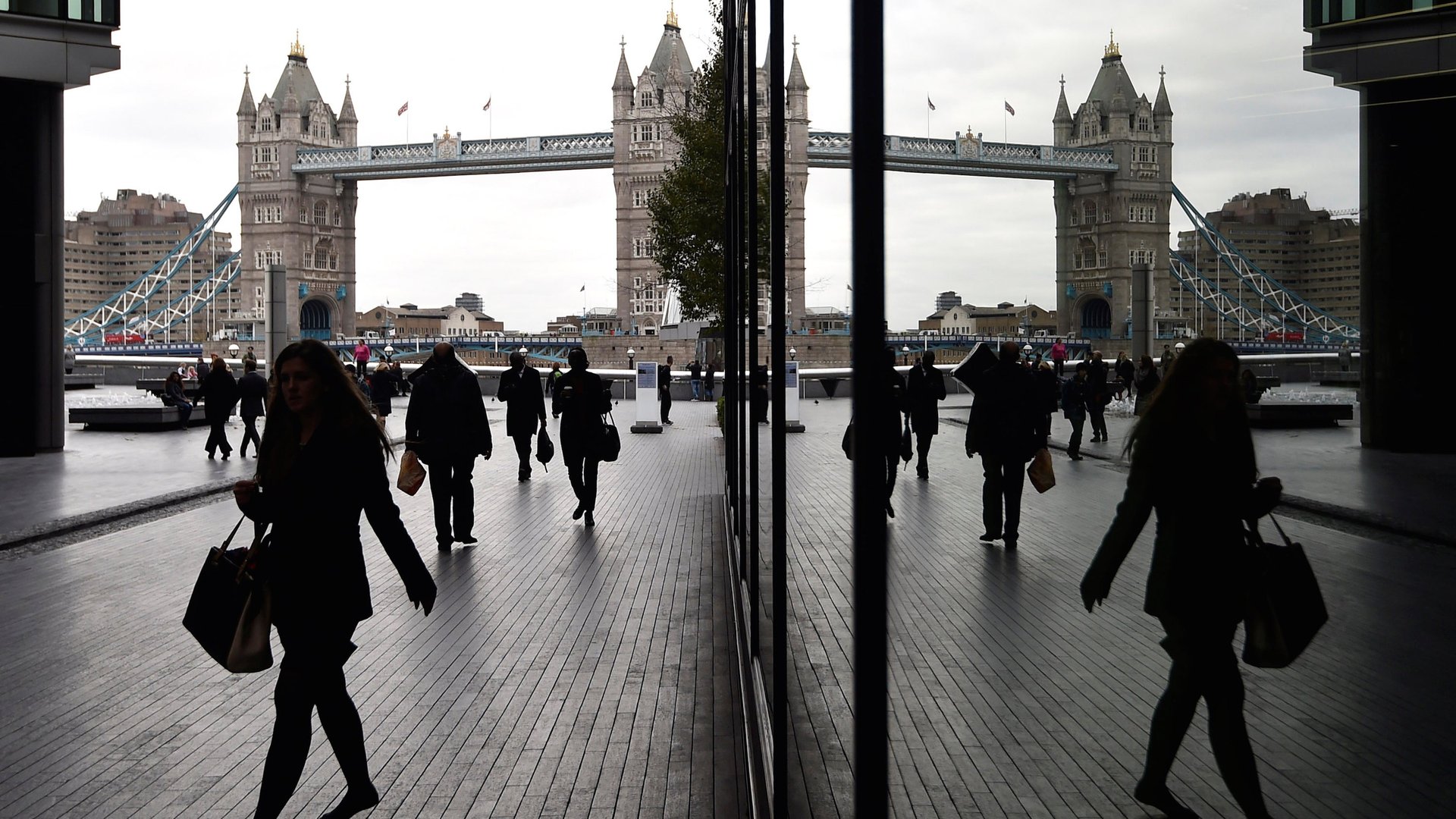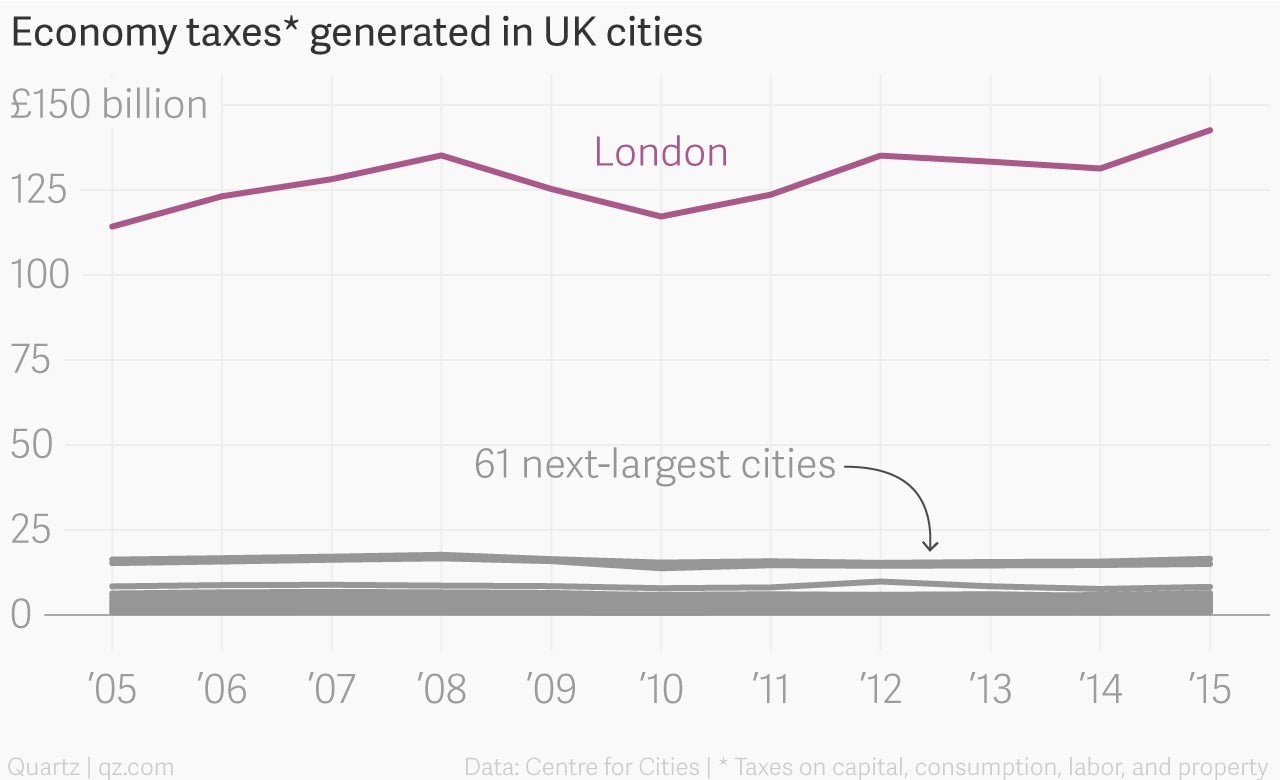London’s total dominance of the UK economy, charted
“It is difficult to speak adequately or justly of London,” wrote Henry James. “It is not a pleasant place; it is not agreeable, or cheerful, or easy, or exempt from reproach. It is only magnificent.”


“It is difficult to speak adequately or justly of London,” wrote Henry James. “It is not a pleasant place; it is not agreeable, or cheerful, or easy, or exempt from reproach. It is only magnificent.”
The famed author may not have had the British capital’s tax-raising powers in mind when penning that passage, but they, too, are magnificent. A recent report by the Centre for Cities ran the numbers and found that London generated as much tax as the next 37 biggest British cities combined, or around 30% of the country’s total take of “economy taxes” (derived from incomes, spending, investments, property, and the like). In the latest fiscal year, London produced nine times as much tax as the next-highest city, Manchester.

The UK’s heavy reliance on London has been increasing in recent years—its tax take was “only” as big the next-largest 24 cities a decade ago. London’s relative contribution to the treasury’s coffers is now roughly double its share of the national population.
The UK’s dependence on London “underlines the importance of ensuring that the capital prospers in a post-Brexit world,” said Alexandra Jones of the Centre for Cities. A majority of voters in London, unlike in the country overall, voted to remain in the European Union in last month’s referendum. Some now fear that that capital’s large finance and technology clusters may suffer if the UK loses its privileged access to EU markets after Brexit. If so, the effects will be felt far outside the city’s borders.